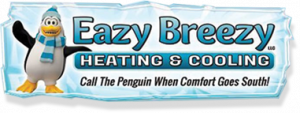How Long Do HVAC Systems Last: Factors That Contribute
Invest in HVAC services in Tucson from Eazy Breezy Heating & Cooling by calling our office at (520) 207-0334.
When it is time to install an HVAC unit, you want to get several years out of it. To do so, you must be aware of the factors contributing to your heating and cooling system’s lifespan.
Eazy Breezy Heating & Cooling is Tucson’s home for HVAC maintenance, installation, and repair. Our licensed and insured technicians will ensure that your heating and cooling unit lasts as long as possible, with proper maintenance treatments.
To help you set realistic expectations for your new HVAC system, below, we will answer the question, “How long do HVAC systems last?”
Factors That Affect Longevity
Many factors impact how many years you can get from your HVAC system.
Wear and Tear
Sometimes, it is hard to avoid HVAC replacement. Over time, your heater or air conditioner will exhibit signs of wear and tear. If you do not fix these problems immediately, your AC unit will suffer.
Poor Maintenance
Another factor that impacts how long your HVAC system will last is how well you maintain it. Have a professional technician inspect your HVAC unit at least twice per year. These inspections allow you to get ahead of potential long-term problems.
Oversized or Undersized Unit
Often, an HVAC technician may install an oversized or undersized unit in your home. Doing so will cause your heating and cooling unit to run inefficiently. Consult with our HVAC technicians to find the best size heater or cooler for your home.
Life Spans for HVAC Systems
So, how long do HVAC systems last? It depends on what kind of heating and cooling system you have.
Furnace – You can expect to get 15 to 20 years out of your furnace. However, you must invest in maintenance to reach that life expectancy.
Boiler – Typically, boilers will last around 35 years. When your heat exchange leaks, it is a sign that you must replace your boiler.
Air Conditioner – A typical air conditioning unit has an average lifespan of 18 years. If you live in a coastal area, that lifespan decreases to ten years due to salt exposure.
Heat Pump – Heat pumps tend to last around a decade and a half. Compressor failures are the biggest reason why HVAC technicians replace heat pumps.
Ductless Mini-Splits – For ductless mini-split units, expect to get a replacement every 20 years. Coastal areas should replace these units every decade.
Schedule an Appointment Today
People who ask us, “How long do HVAC systems last?” also ask about other parts of their HVAC system. Here are some common HVAC terms you can familiarize yourself with.
Eazy Breezy Heating & Cooling provides exceptional HVAC maintenance services to Tucson, AZ, homes, and businesses. Our contractors are licensed and insured, meaning we assume all liability during service calls. Call our office today at (520) 207-0334 to schedule an appointment.
We are also available 24/7 for emergency services!



